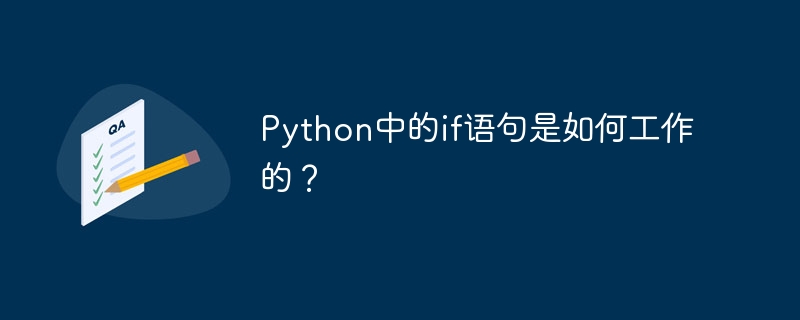

How does the if statement work in Python?
In Python, the if statement is a conditional statement used to execute different blocks of code based on specific conditions. When the condition is met, the code block in the if statement will be executed, otherwise it will be skipped.
The basic syntax of an if statement is as follows:
if 条件:
# 条件满足时执行的代码块In the above example, the condition is a Boolean expression or a function that returns a Boolean value. If the condition evaluates to True, the code in the if statement block will be executed. Otherwise, the code block will be skipped directly.
Besides the basic if statement, there are several other variations:
if-else statement:
if 条件: # 条件满足时执行的代码块 else: # 条件不满足时执行的代码块
In this case, If the condition is met, the code in the if statement block is executed, otherwise the code in the else statement block is executed.
if-elif-else statement:
if 条件1: # 条件1满足时执行的代码块 elif 条件2: # 条件2满足时执行的代码块 else: # 条件都不满足时执行的代码块
This structure allows us to execute different code blocks based on different conditions. First, check whether condition 1 is met, and if so, execute the corresponding code block. If condition 1 is not met, continue checking condition 2, and so on. If all conditions are not met, the code in the else statement block is executed.
The following is a specific code example that demonstrates the use of if statements:
# 判断一个数是正数、负数还是零
num = int(input("请输入一个整数:"))
if num > 0:
print("这是一个正数")
elif num < 0:
print("这是一个负数")
else:
print("这是零")In the above example, we first use input The function gets an integer from the user. Then, use the if-elif-else statement to determine whether the number is positive, negative, or zero, and print the corresponding result.
In summary, the if statement is an important tool for conditional judgment in Python. We can execute different code blocks based on specific conditions to improve the flexibility and readability of the program. In actual development, if statements are often used in combination with other control structures such as loops and functions to further expand their functions.
The above is the detailed content of How do if statements work in Python?. For more information, please follow other related articles on the PHP Chinese website!




